Airbnb Harms Neighborhoods
chisue
2 years ago
Featured Answer
Sort by:Oldest
Comments (42)
matthias_lang
2 years agonicole___
2 years agoRelated Discussions
My AirBnB foray (because Gooster asked)
Comments (45)Jorge, I was mistaken. the Traveler commission rates on AirBnb are 6 - 12%, depending on the rent. The higher the rent, the lower the commission. I don't know what the break off points are, though. The owner pays 3%. So AirBnb is getting 9 - 15%, which is very hefty. Consider the taxes the owner is paying, the rent the traveler is paying, esp. on a vacation rental/resort area where rents are high, mortgages, repairs and maintenance..it's absurd. There's a lot of upheaval right now in that industry because these sites are really gouging homeowners and travelers. In addition, these rental sites are getting income from THOUSANDS, even hundreds of thousands of properties, while travelers are making ONE trip and homeowners are renting ONE property. from which they make their livelihoods. It is pure greed on the part of the rental sites. I do think that commission and PPB model will collapse at some point. In addtion, as an owner, one thing about the commission/PPB sites is that, when you get an inquiry, they practically have to book the property before you can have any meaningful vetting conversation (for both sides). These sites have software that prevents - quite strenuously - any ability to give the inquirer a phone # to call (and vice versa), an email address, etc., and the reason is they don't want you referring the traveler to another site where you also advertise your property but where the traveler wouldn't have to pay the commission, which homeowners actually want to do for their guests. My feeling is, if you have to disallow free communication, cause people to try to write in code (and even then, it fails) in order to keep customers from finding your competition, there is something wrong with your model....See MoreYet another worry: party homes for rent coming to your neighborhood!
Comments (7)Not only can the HOA fine an owner if short term rentals are prohibited, but the city may as well. In our resort area, a short term rental permit is required and the city tightly controls short term rentals. Code enforcement is good. In addition, if the covenants of subdivision disallow short term rentals, the city will not issue a permit. Our current small subdivision does not allow short term rentals and, in 11 years, I only know of one homeowner (a builder) that violated the covenants when he couldn't sell the newly built house during the bust. We turned a blind eye and didn't complain given the circumstances. It turned out not to be a problem. The nightly rental was very high, which kept the usage down, and the house sold at the end of the season. However, although our little subdivision does not allow short terms, they are allowed in neighboring areas, so we do get some short term rentals nearby and have had a few noise issues. The subdivision where we have bought a lot to build does not allow short term rentals and is, for the most part, geographically protected from surrounding neighborhoods that do by green space. The few lots that do back up to another neighborhood were priced lower and still slower to sell. At the annual meeting of the HOA last year, a realtor proxy moved to amend the covenants to remove the short term rental restrictions. The motion was withdrawn when it became abundantly clear that all owners present bought, at least in part, because of the restriction. In resort areas, most folks (or their realtors) already know that you really need to read your subdivision documents closely for this issue. In fact whether short term rentals are allowed is often disclosed in the listing. Some second homeowners may want to rent out their home to defray the cost of ownership, while others want to be away from the bother. With this new phenomenon in other good-time cities, I would expect that a wise buyer there would also check the subdivision documents carefully and also check in with the city....See Moreairbnb? alone?
Comments (13)Would you want Airbnb in your neighborhood? It's probably illegal in your home town for a hotel or bar or *other business* to set up shop outside of areas zoned for those purposes. They must have licenses. They have to pay business taxes. They have to pay higher RE taxes. . (Genuine B&B's must be inspected.) I would be furious if one of my neighbors started renting rooms to a passing parade of strangers. I don't want my taxes to subsidize services used by these visitors. I don't want strangers parking on my street, walking around my neighborhood or partying. I don't want people checking in or out at all hours. I want the kids to know who 'belongs' on their street. There's a legal way to run a business. And there is Airbnb. We own a short term vacation rental on Maui. It's in an area ZONED for this use. We have a LICENSE to operate. We pay triple the RE TAXES a homeowner pays. We collect and pay 13.42% MUNICIPAL and STATE TAXES on every dollar of rent. Guests and their vehicles are REGISTERED at the front desk, as required by law. We employ a local AGENT to be on call for our guests. There is a resident manager. There is security at night. The complex has to pass safety inspections. Anyone buying here knows this is not residential-only....See MoreAirBnB rental horrific story
Comments (12)Sort of OT, but there's an Airbnb commercial airing now featuring the home of a young woman who talks about how she's not in it for the money, but in order to expose others to her culture (or something along those lines). I found her listing on Airbnb and it looks like a lovely place, but some of the reviews mentioned spending time hanging out with the owner. Having s'mores with her and enjoying spending time with her. I assumed she was renting out rooms in her house (although her listing describes it as the entire house; perhaps that's on a whatever-works-for-the-renter basis), and it made me wonder who would stay in the home while the owner is there. I cannot imagine. It's one thing to rent the home of a stranger; quite another to share it with them, I thought. But then I got to thinking about bed & breakfasts where I've stayed that operated on a nearly identical basis. Years ago I stayed in a gorgeous old Victorian in Eureka Springs and we had the top floor to ourselves, while the owners occupied the ground floor. In Devon, my mother and I shared a bedroom in a guest house and the owners lived on the premises. I guess in that regard Airbnb is no different, so then why does it seem a little creepy to me?...See MoreFun2BHere
2 years agolast modified: 2 years agoElmer J Fudd
2 years agolast modified: 2 years agocolleenoz
2 years agomatthias_lang
2 years agolucillle
2 years agoraee_gw zone 5b-6a Ohio
2 years agojupidupi
2 years agolast modified: 2 years agochisue
2 years agolast modified: 2 years agoHamiltonGardener
2 years agoToronto Veterinarian
2 years agochisue
2 years agoarcy_gw
2 years agochisue
2 years agolast modified: 2 years agocolleenoz
2 years agolucillle
2 years agolisaam
2 years agocmm1964
2 years agomatthias_lang
2 years agochisue
2 years agolast modified: 2 years agoC Marlin
2 years agoC Marlin
2 years agolast modified: 2 years agodaisychain Zn3b
2 years agoUser
2 years agochisue
2 years agoC Marlin
2 years agoElmer J Fudd
2 years agolast modified: 2 years agochisue
2 years agobpath
2 years agoElmer J Fudd
2 years agolast modified: 2 years agoElmer J Fudd
2 years agolast modified: 2 years agojewelisfabulous
2 years agochisue
2 years agoarcy_gw
2 years agoToronto Veterinarian
2 years agoraee_gw zone 5b-6a Ohio
2 years agosleeperblues
2 years agochisue
2 years agoaziline
2 years agoHamiltonGardener
2 years ago
Related Stories
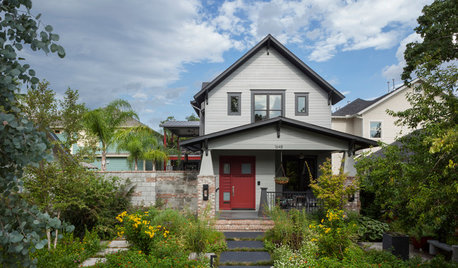
ARCHITECTUREHouzz Tour: Modern Plays Nice in a Historic Houston Neighborhood
Subtle modern details make this new home stand out from its elderly neighbors without disrespecting them
Full Story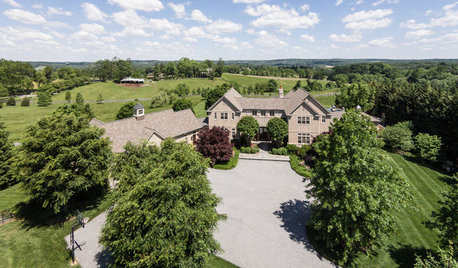
HOME TECHThe Inevitable Future of Drones Around Your Home
As Google joins the push for airborne deliveries, it seems only a matter of time before neighborhoods are buzzing with drones. Is that OK?
Full Story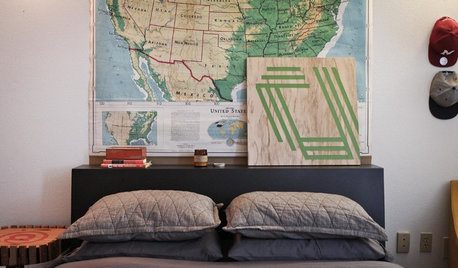
MY HOUZZMy Houzz: An Urban Oasis in a Converted Loft
An unassuming former garage is home to a tranquil gem of a rental in Seattle’s Queen Anne neighborhood
Full Story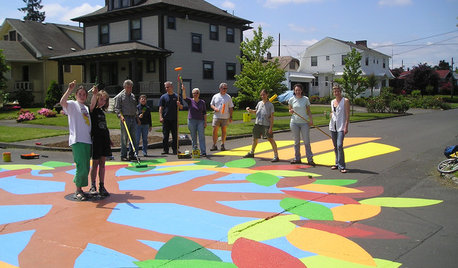
COMMUNITYCommunity Building Just About Anyone Can Do
Strengthen neighborhoods and pride of place by setting up more public spaces — even small, temporary ones can make a big difference
Full Story
EVENTSHouzz Call: Share Your Eclipse Party Photos!
Are you in the path of totality? Please post pictures and tell us how you're viewing from your home or neighborhood
Full StoryTRADITIONAL HOMESHouzz Tour: Historic Charm in a Beacon Hill Beauty
A new family-friendly kitchen is among the upgrades for this home in the 19th-century Boston neighborhood
Full Story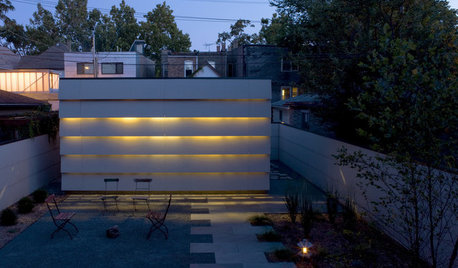
LIGHTINGWildlife-Sensitive Ways to Light a Coastal Landscape
Reduce harm to land and sea creatures by choosing the right light sources and placing them thoughtfully
Full Story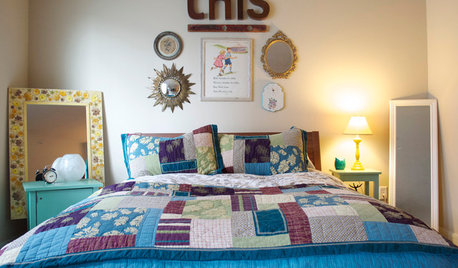
SMALL HOMESMy Houzz: Color and Pattern Animate a Small Studio
DIY ingenuity and a talent for thrifting help a Texas performer make the most of her modest rental
Full Story
GARDENING GUIDESHow to Fix Bare and Yellow Lawn Spots
Restore your turf’s good looks by reseeding unsightly patches
Full Story
FARM YOUR YARDHow to Farm Your Parking Strip
Get an up-close look at a thriving street-side edible garden, one of many sprouting up in Seattle
Full Story


beesneeds